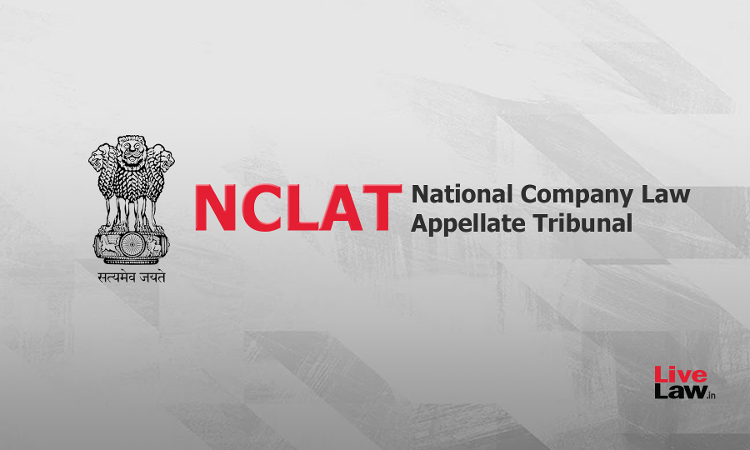Required Percentage For Passing Resolution Must Be Calculated Based On Voting Shares Of All Creditors, Not Just Those Present & Voting: NCLAT
Mohd Malik Chauhan
14 Aug 2025 6:05 PM IST
The National Company Law Appellate Tribunal (NCLAT) New Delhi bench of Justice Ashok Bhushan and Mr. Barun Mitra (Technical Member) has held that the required percentage of 66% as mandated under the Insolvency and Bankruptcy Code, 2016 (IBC) for passing a resolution by the Committee of Creditors cannot be counted merely based on voting shares of the creditors who are present and...
The National Company Law Appellate Tribunal (NCLAT) New Delhi bench of Justice Ashok Bhushan and Mr. Barun Mitra (Technical Member) has held that the required percentage of 66% as mandated under the Insolvency and Bankruptcy Code, 2016 (IBC) for passing a resolution by the Committee of Creditors cannot be counted merely based on voting shares of the creditors who are present and voting but voting shares of the all the creditors including absentees must be counted.
The present two appeals have been filed against two orders passed by the National Company Law Tribunal (NCLT) Chandigarh by which it directed the liquidation of the corporate debtor and rejected the Appellant's application seeking approval of the Resolution Plan.
The Appellant submitted that for considering feasibility and viability, the members of the CoC has to be present in the meeting and those members of the CoC who are not present in the meeting their votes cannot be included for computing the majority of vote share of Financial Creditors.
Per contra, the Respondents submitted that Section 30(4) of the IBC clearly provides that the Resolution Plan is to be approved by vote of not less than 66% of the voting share of the Financial Creditors. Thus, the requirement of 66% has to be computed on the voting share of the Financial Creditors and Section 30(4) does not provide for taking into consideration only the votes of those who are present and voting.
The Tribunal observed that when the term voting shares of the financial creditor is used, the voting percentage of 66% must be construed based on the total voting shares of all the financial creditors, not just those who are present and voting. Section 30(4) of the IBC does not confine the voting for passing a resolution to the attendees. Regulation 26 of the CIRP Regulations empowers the Resolution Professional to allow those creditors who did not vote in the meeting to vote in an electronic mode.
It further held that therefore, this negates the submission of the Appellant that the creditors can cast their votes only in the meeting. The Supreme Court in K. Sashidhar relied on Regulations 25 and 39 of the CIRP Regulations and held that the required percentage for passing the resolution must be counted based on voting shares of all the creditors including those who were absent at the time of voting, not just those who are physically present and voting.
Accordingly, the present appeals were dismissed.
Case Title: Saariga Construction Pvt. Ltd. Versus Arvind Kumar, RP, Richa Industries Ltd. & Anr.
Case Number:Company Appeal (AT) (Insolvency) No. 887 of 2025
Judgment Date: 11/08/2025
For Appellant : Mr. Aalok Jagga, Mr. Karan Malhotra, Mr. Anant Shankar Tripathi, Mr. Nahush Jain, Mr. APS Madaan, Advocates.
For Respondents : Mr. Nitin Kant Setia, Advocate for R-1 (RP). Mr. V. K. Sachdeva, Mr. Paras Mithal, Mr. Parakhar Mithal, Mr. Gaurav Goel, Mr. Pulkit Sachdeva, Mr. Gaurav Raj, Advocates for R-2. Mr. Abhishek Anand, Mr. Karan Kohli, Ms. Palak Kalra, Mr. Akshit Awasthi, Mr. Rajat Gupta, Ms. Ridhima, Advocates with Ms. Vanshika Dhoot, for Liquidator.



